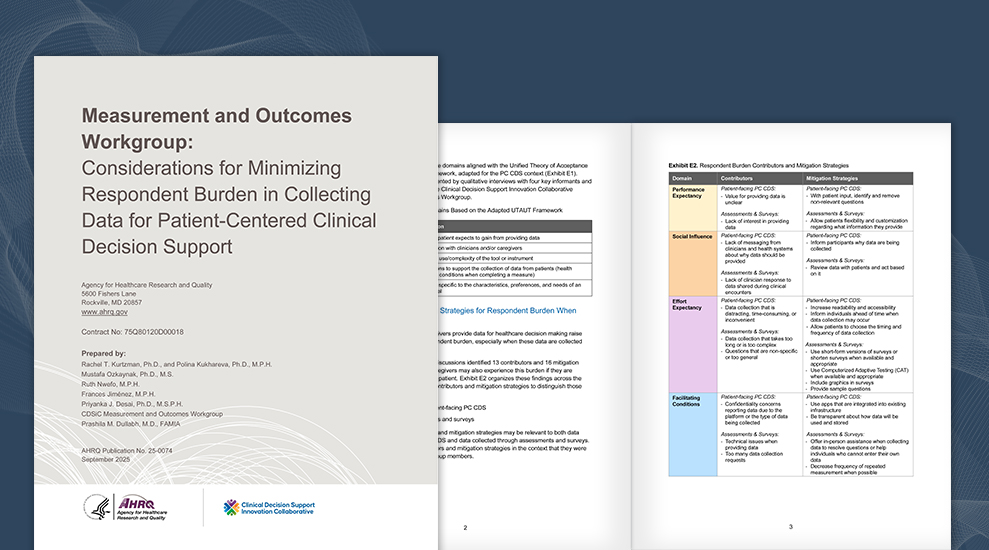
PC CDS tools can be used to collect data from patients and provide timely information that informs healthcare decision making. However, collecting patient-provided data can create respondent burden, which may lead to decreased response rates, reduced data accuracy, and a negative impact on the patient-clinician relationship. This report identifies respondent burden contributors and mitigation strategies organized across five UTAUT domains: performance expectancy, social influence, facilitating conditions, effort expectancy, and personal factors.
About the Report
This report’s findings are based on a targeted review of peer-reviewed and gray literature, which was then augmented through qualitative key informant interviews with PC CDS researchers and a patient advocate.
Contributors to patient burden identified in the report include:
- The value of providing data is unclear and there may be a lack of interest in providing data.
- Clinicians and health systems do not highlight the importance of providing data and often do not respond to data shared during encounters.
- Confidentiality concerns when reporting data due to the platform or the type of data being collected.
Potential strategies to mitigate these burdens include:
- Use patient input to eliminate irrelevant questions and offer flexibility in the information they share.
- Inform patients why data is being collected, and review data with patients.
- Use apps that fit within the current infrastructure and clearly communicate data usage and storage practices.
How To Use This Report
PC CDS developers, clinicians, and researchers can use this report to reduce patient burden when collecting data via digital tools by applying mitigation strategies and designing sustainable, patient-centered approaches.
Suggested Citation: Kurtzman RT & Kukhareva P, Ozkaynak M, Nwefo R, Jiménez F, Desai PJ, CDSiC Measurement and Outcomes Workgroup, and Dullabh PM. Considerations for Minimizing Respondent Burden in Collecting Data for Patient-Centered Clinical Decision Support. Prepared under Contract No. 75Q80120D00018. AHRQ Publication No. 25-0074. Rockville, MD: Agency for Healthcare Research and Quality; September 2025.





